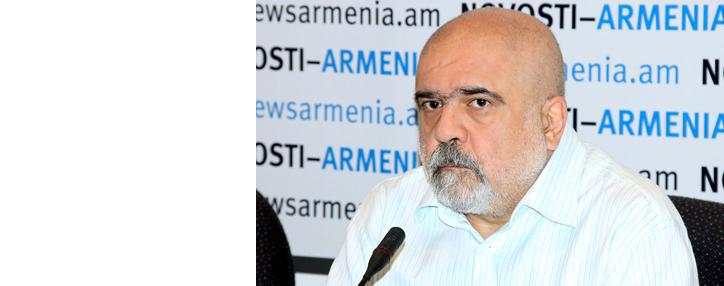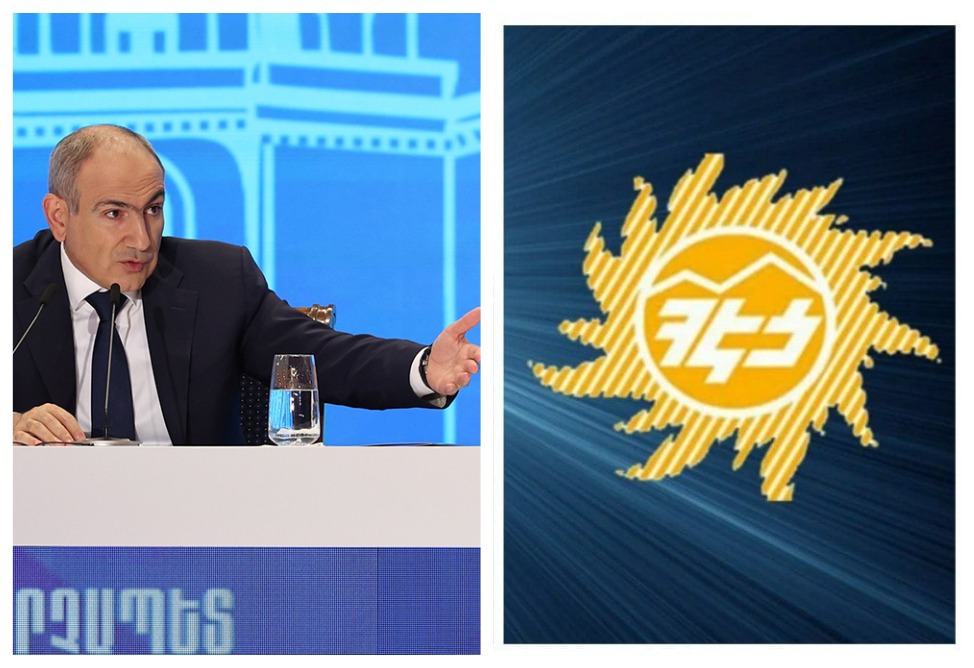Iskandaryan: no unipolar world possible ever
05.12.2012,
17:43
A session will be held at the upcoming Forum of European and Asian Media (FEAM) in Minsk to discuss globalization and localization in the modern unstable world. The delegates will be suggested to discuss not only media problems, but also global political, economic and social issues.

A session will be held at the upcoming Forum of European and Asian Media (FEAM) in Minsk to discuss globalization and localization in the modern unstable world. The delegates will be suggested to discuss not only media problems, but also global political, economic and social issues.
How to increase attractiveness of the Eurasian project? Is the growing movement toward independence in the outskirts of Europe an indication of incipient de-globalization? Is unipolar world that lasting or not? These are the questions that the Director of Institute of Caucasus Alexander Iskandaryan answered in his interview to RIA Novosti, ahead of the seventh FEAM.
- What do you think, has the European integration project failed, having in mind the visible signs of economic, cultural, ethnic and demographic crisis in Europe?
— It depends on what is that we call a European project. If it is an attempt to unite European countries into a federal state or an attempt to level and homogenize such a fantastically diverse region as Europe – there are very few similarly big and diverse regions in the world – then, of course, it is a failure. And I think, the expectations were either naive or low-realistic from the beginning. But if saying a European project we mean simply an attempt to develop some general rules of co-existence for different European states and societies who had fought for centuries, then, no doubt, the project is in crisis, but not in a lethal one, not at all. The crisis can be well overcome, and the project can further deepen and expand.
- Is the spiralling movement toward independence in the outskirts of Europe, in Scotland and Catalonia in particular, an indication of incipient de-globalization or isolation, even if only in the consciousness of the masses?
— It is not de-globalization, but contra-globalization. Reaction of the local to the global is old like the world. If a balanced local to global ratio is found and if bounds are groped for not to be overstepped, the two processes can be easily adapted to each other. The developing culture of peaceful and multi-step coordination of interests and wishes will make it possible.
If, instead of deporting, slaughtering and bombing, people negotiate, set up conciliation commissions and institutionalize political trends, it will be possible to separate painlessly (if wished), with no damage caused to projects and with the community membership retained. Of course, if separating like Czech Republic and Slovakia, not like Eritrea and Ephiopia.
- What do you think, how the Eurasian project can become more attractive? Can it turn to a serious international factor?
— Like any other project, the Eurasian project as well can become attractive if it is successful. Promotion helps little when there is nothing to promote. Clear limits and rules, well-defined interaction bounds – conditions like these will help develop any project, however complicated it is. These conditions are even more important for such a project where one of the states is bigger than all the other ones together, and, in addition, is a former parent state. This gives rise to understandable concerns stirred up by rather blurred bounds of the project. The concerns can be well resolved through clear rules and conditions. And then the project will get a chance of success, particularly on the international scene.
- What do you think, will the current Near East situation spread over Iran? Does it then mean that, as many experts say, construction of a new global order has started?
— Construction of the new global order started when the USSR collapsed and will last long. It is, in fact, a process of transition from bipolar world to a multipolar world. Many sorts and kinds of turbulence developing throughout the world are part of this process. It does not mean that there was no turbulence before the collapse of the USSR or that the turbulence was better before. No. But the world has changed, and what can happen how, could not be possible before.
- In your opinion, what will happen to the unipolar world in the foreseeable future?
— Any long-lasting and firm unipolar world is not ever possible in future. World managed by an arbitrary strong centre will collapse like the Soviet Union did, and for the same reasons, but ten times as intense as in case with the USSR.
Alexander Iskandaryan, political analyst, Caucasus Institute (Yerevan). His areas of study are ethnopolitical conflicts, post-communist transformations and nation building in the former USSR in general and in the Caucasus in particular. Since the early 1990s, he has specialized on conflicts in the South and Northern Caucasus, elections in a transition setting, and the building of post-Soviet identities. He has also conducted and supervised research on migration, regional integration, media development and the formation of public discourses. In 2002, Iskandaryan moved to Yerevan from Moscow where he headed the Caucasus Research Center. -0-



